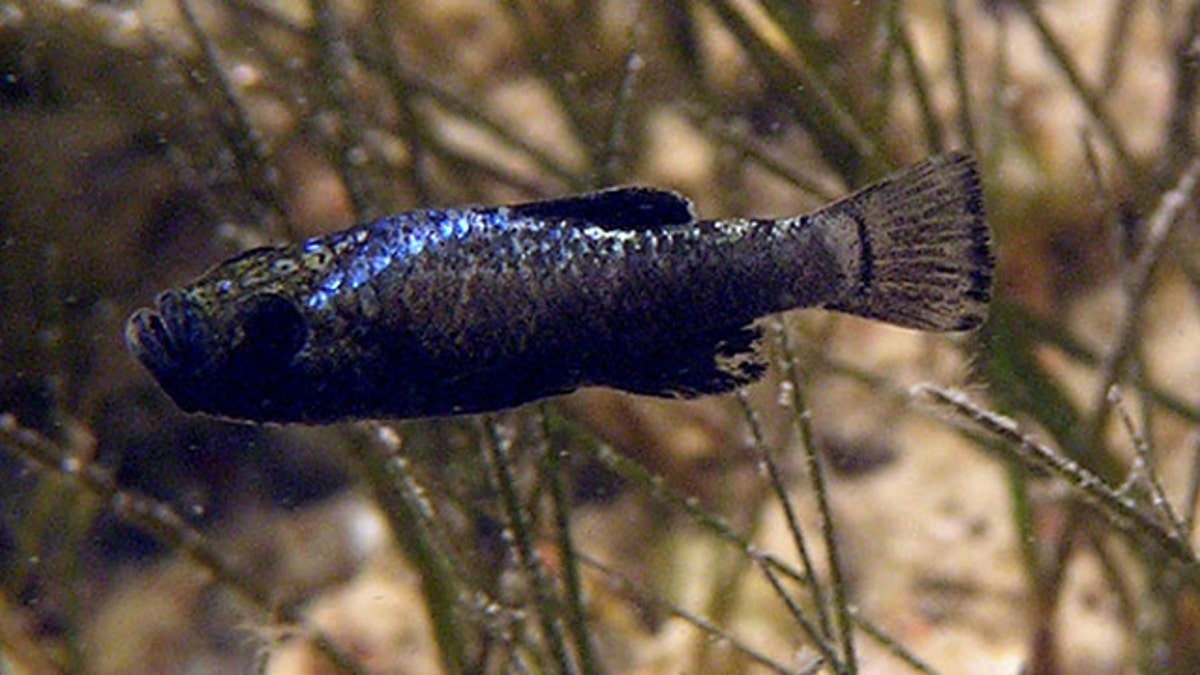
This pupfish from San Salvador island is the only species known to eat scales from other fish. (Chris Martin, UC Davis)
Pupfish with unusual diets, like biting off the scales of other fish, show some of the fastest rates of evolution known, according to a new study.
The tiny fish can survive in salty desert waters, such as within Devil’s Hole in Nevada. Pupfish live throughout much of the Americas, and of the 50 species most look the same and have the same food source, eating algae and detritus, according to lead researcher Chris Martin, a University of California, Davis graduate student.
One of the exceptions lives in shallow salty lakes on San Salvador Island in the Bahamas. The scale biter lives here, as does another species that eats small snails and creatures known as clam shrimp. Other odd types of pupfish originate from the Yucatán Peninsula of Mexico, where one eats other fish and another lives on plankton (tiny floating animals and plants). Both are now extinct in the wild.
The lakes in the Bahamas and Mexico formed, respectively, 10,000 and 8,000 years ago. Meanwhile, pupfish probably initially spread across North America about 3 to 5 million years ago, making these odd species very recent additions to the pupfish family tree, according to Martin.
These pupfish have evolved special jaws to match their diets. Martin looked at the jaws to construct an evolutionary history of the species. He found that the pupfish from these two locations, San Salvador Island and the Yucatán, have evolved up to 130 times faster than other pupfish. [Super Predators: Humans Force Faster Evolution of Animals]
It's not clear why. All live in hot and salty water, but so do other pupfish. And other fish in the same lakes show no signs of rapid change, according to the researchers. To find out, Martin is taking lab-bred pupfish, including hybrids, back to the lakes to see whether they thrive. He hopes to see which fish succeed out of the spectrum of hybrids.
The research appears online in the journal Evolution.
10 Species You Can Kiss Goodbye
Religious Ceremony Forces Fish to Evolve or Die
Copyright © 2010 LiveScience.com. All Rights Reserved. This material may not be published, broadcast, rewritten or redistributed.








































